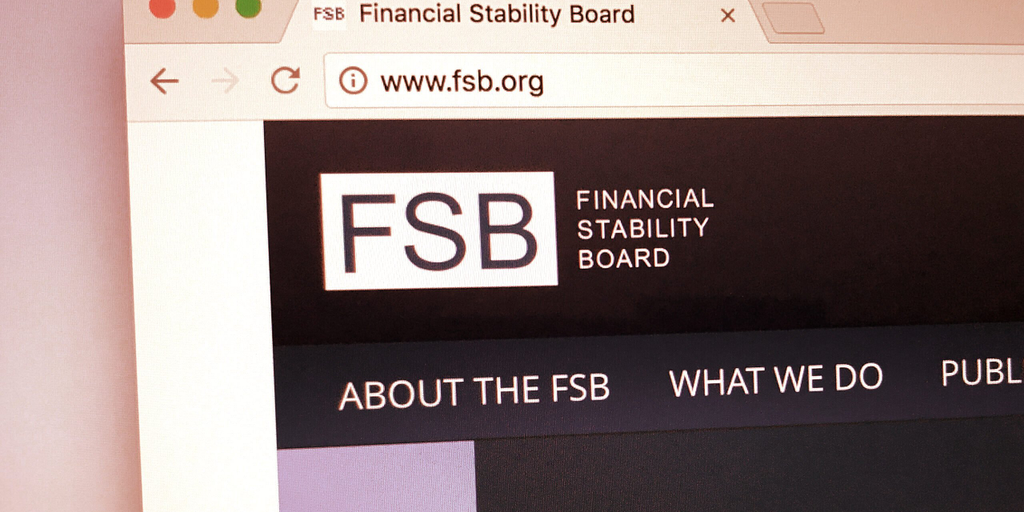
The Financial Stability Board (FSB), the world’s largest financial services regulator, has said it is set to hold crypto firms “to the same standards as banks . . . if they provide the same service that banks provide.”
A spokesperson for the global watchdog told the Financial Times it is set to lay out a new set of international rules governing cryptocurrencies in early 2023, which would then be implemented by local governments.
The FSB was established in 2009, directly after the 2008 credit crunch. The Swiss organization monitors and makes recommendations about the global financial system alongside organizations such as the International Monetary Fund, the World Bank, and the World Trade Organization.
In terms of specific areas of focus, Dietrich Domanski Secretary General of the FSB said there may be regulations governing where there is “a combination of different activities that are traditionally separate.”
He said the new framework may include rules to “clarify governance arrangements and ensure transparency” and to “safeguard” customer funds in the case of a “run,” where consumers rush to withdraw their funds all at once.
The regulator claimed that holding crypto firms to such standards would have prevented disasters such as the FTX scandal and the Terra Luna collapse earlier this year, which have led to historically low prices for both cryptocurrencies and the relevant service providers.
Domanski emphasized that his organization will try and act with a degree of urgency when implementing these guidelines, saying that: “I don’t think that we would be talking about a decade,” adding that this period would be “would be way too long.”
He said crypto regulation was one of the FSB’s primary objectives, alongside climate regulation and non-bank regulation.
The exec also defended his organization from accusations that it has moved slowly in the past, saying that he would “invite them to follow a global cooperative process” and then tell him that the FSB could have moved faster.
FSB regulations and the global community
The move towards a solidified global set of regulations comes as many regions are now clarifying their rules governing crypto assets.
The EU recently instituted a new set of rules governing the taxation of crypto assets as part of a much broader set of tax regulations, which will force companies of any size processing crypto transactions to report these for tax purposes.
The UK government, as part of a broadly liberal set of new financial regulations, extended tax breaks for investment managers turning to crypto as part of the package of over 30 reforms.
Stay on top of crypto news, get daily updates in your inbox.
Read More: decrypt.co








 Bitcoin
Bitcoin  Ethereum
Ethereum  Tether
Tether  XRP
XRP  Solana
Solana  USDC
USDC  Dogecoin
Dogecoin  TRON
TRON  Cardano
Cardano  Lido Staked Ether
Lido Staked Ether  Wrapped Bitcoin
Wrapped Bitcoin  LEO Token
LEO Token  Avalanche
Avalanche  Chainlink
Chainlink  Stellar
Stellar  Sui
Sui  USDS
USDS  Shiba Inu
Shiba Inu  Toncoin
Toncoin  Hedera
Hedera  Wrapped stETH
Wrapped stETH  Bitcoin Cash
Bitcoin Cash  Litecoin
Litecoin  Polkadot
Polkadot  Binance Bridged USDT (BNB Smart Chain)
Binance Bridged USDT (BNB Smart Chain)  Bitget Token
Bitget Token  Hyperliquid
Hyperliquid  Ethena USDe
Ethena USDe  Pi Network
Pi Network  WETH
WETH  WhiteBIT Coin
WhiteBIT Coin  Monero
Monero  Wrapped eETH
Wrapped eETH  Uniswap
Uniswap  OKB
OKB  Dai
Dai  Coinbase Wrapped BTC
Coinbase Wrapped BTC  Pepe
Pepe  Aptos
Aptos  Gate
Gate  Ondo
Ondo  Tokenize Xchange
Tokenize Xchange  NEAR Protocol
NEAR Protocol  sUSDS
sUSDS  BlackRock USD Institutional Digital Liquidity Fund
BlackRock USD Institutional Digital Liquidity Fund  Internet Computer
Internet Computer  Cronos
Cronos  Mantle
Mantle  Ethereum Classic
Ethereum Classic